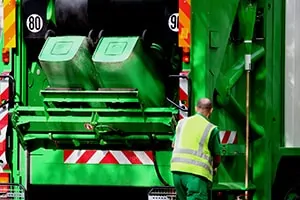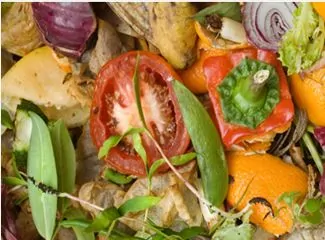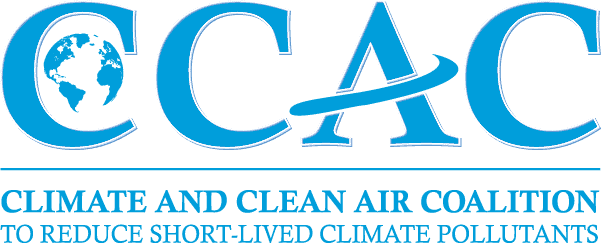

Stay informed. Explore a variety of topics and expand your knowledge of what’s happening in solid waste management. Today’s SCS blog covers Safety, Privatization, Anaerobic Digestion, Coal Combustion Residuals in MSWLFs, and the International Climate and Clean Air Coalition.
Click the article or presentation title to read more.

Is Privatization the Answer? You need to consider several factors before making the decision for solid waste services. The decision by a governmental agency to perform solid waste services or to outsource them (privatizing) is complex and should consider costs and the major factors discussed in this MSW Management article by Marc Rogoff, Karl Moyers, Michelle Leonard, and Robert Gardner.


Climate and Clean Air Coalition to Reduce Short-Lived Climate Pollutants (CCAC) SCS will participate in the CCAC’s initiative to mitigate Short-Lived Climate Pollutants (SLCPs) from the Municipal Solid Waste sector. Read more about this international coalition to get involved.
Municipal Solid Waste Landfills and Coal Combustion Residuals Municipal solid waste landfills can safely manage CCR from coal-burning electric utilities, and changing regulations may increase the market for off-site disposal of CCR. But landfills should accept CCR only after adjusting their procedures to reflect the special characteristics of CCR materials. What do you need to know? Find out in this article by Mike McLaughlin member of the ABA, SEER Waste and Resource Recovery Committee.
SCS Engineers is proud to announce its acceptance as an “Actor” in the Climate and Clean Air Coalition to Reduce Short-Lived Climate Pollutants (CCAC). SCS will participate in the CCAC’s initiative to mitigate Short-Lived Climate Pollutants (SLCPs) from the Municipal Solid Waste sector.
The CCAC is a voluntary international framework that encourages countries and organizations to take concrete steps to reduce SLCPs in order to protect the environment and public health, promote food and energy security, and address near-term climate change. The initial focus is on methane, black carbon, and many hydrofluorocarbons (HFCs). Fortunately, as their name indicates, SLCPs have a relatively short lifetime in the atmosphere, and therefore determined efforts to mitigate them now can significantly reduce their concentrations in a relatively short period of time. Many cost-effective technologies and practices have already been implemented in key sectors around the world and benefits are being seen.

The Coalition sponsors eleven initiatives designed to address urgent environmental challenges through collective and individual partners’ action. Some of the initiatives include: reducing black carbon emissions from heavy-duty diesel vehicles and engines; promoting HFC alternative technology and standards; addressing short-lived climate pollutants from agriculture; supporting national planning for action; financing mitigation of SLCPs; regional assessments; and urban health.
Founded in 2012, the CCAC is the first global effort to address the urgent challenge of SLCPs. The Coalition encourages all countries, regional economic integration organizations (REIO), intergovernmental organizations (IGOs), non-governmental organizations (NGOs), and private sector entities that are committed to solving this global and collective challenge to participate in its initiatives. To date, 48 countries, 14 IGOs, and 43 NGOs participate in the CCAC.

Upon receiving the letter of acceptance, SCS Vice President Dana Murray said, “We are pleased to be approved as an Actor and believe this initiative makes a difference in the human health and environment of the cities it assists because it looks at improving municipal solid waste management holistically at the local level.”
An introduction to anaerobic digestion technologies and processes. This presentation covers the operational, construction and permitting of facilities. What are the technical and financial considerations? Find out in this excellent guide by Tom Kraemer and Greg McCarron, SCS Engineers.
Click here to view the presentation.
Contact Greg McCarron the SCS National Expert in Organics Management or visit our website by clicking here.
CHARLESTON, SC –SCS Engineers has hired Dale Haase to provide full Environmental Health and Safety solutions to SCS’s growing industrial client base. He is located in SCS’s Charleston, S.C., office.
As an SCS Project Manager, Mr. Haase will prepare and submit air permit applications; waste water applications: NPDES, stormwater and SPCC plans; hazardous waste generator compliance plans; and all types of environmental compliance reporting for clients. He is particularly experienced at helping clients build sustainable health and safety cultures using training and positive behavior reinforcement with an emphasis on compliance and case management.
“Dale has prepared and managed environmental permitting and compliance documentation for industrial and manufacturing clients, while at the same time helping them navigate and realign their safety culture for outstanding outcomes,” stated Nina Marshtein, Environmental Services Practice Leader and manager of the SCS Charleston office. “Dale has a results-oriented track record that SCS and our clients’ value. “
Mr. Haase is licensed in South Carolina as a Professional Engineer. He earned a Bachelor’s of Science degree in Civil Engineering in 1991 from the University of South Carolina, Columbia.
SCS Engineers provides environmental solutions to a broad spectrum of industries in South Carolina, including aerospace, oil and gas, mineral mining, chemicals and pharmaceuticals, textiles, printing and publishing, woodworking, agricultural products, automotive products and the solid waste industry. Learn more here.
Additional planning can help protect your facility from severe weather. This article discusses how owner/operators can help prevent damage to their critical solid waste facilities that need to function during and after a major storm.
Published in WasteAdvantage Magazine, October 2015. Click here to read the full article.
Written by Bruce Clark and Marc Rogoff, SCS Engineers in the Southeast Region.
SCS Engineers’ Vice Presidents Tom Rappolt and Dan Johnson have collectively been named the 2015 IEA Associate of the Year by the Industrial Environmental Association (IEA) of San Diego. An award will be presented at the 31st Environmental Awards Luncheon on October 29, 2015, at the San Diego Convention Center.
IEA promotes responsible, cost-effective environmental laws and regulations, facilitates environmental compliance among member companies and provides educational activities for the San Diego community and Southern California.
“This award recognizes SCS Engineers’ many years of support for IEA and our mission,” said Meridith Marquis, President of IEA. “Several SCS staff members have provided critical technical expertise, helped IEA members and staff in evaluating the impacts of regulatory and legislative proposals, and actively participated in several IEA committees and conferences.”
Learn more about SCS Services by clicking here.
SCS Engineers will evaluate the collection, hauling, and processing of organic material and food waste for Placer County in compliance with California’s recently adopted mandatory organics recycling law. According to the California Department of Resources Recycling and Recovery, the state disposes of approximately 30 million tons of waste in landfills each year, of which more than 30 percent could be used for compost or mulch.
The Environmental Quality Council adopted the revised rules at a public hearing in Cheyenne, Wyoming, and the final rule was filed with the Wyoming Secretary of State on September 15, 2015.
• Chapter 8, Quality Standards for Wyoming Groundwaters;
• Chapter 13, Class I Hazardous Waste and Non-Hazardous Waste Wells Underground Injection Control Program;
• Chapter 16, Class V Injection Wells and Facilities Underground Injection Control Program;
• Chapter 27, Underground Injection Control Program.
Copies of the Water Quality Rules and Regulations are available electronically on the Wyoming Secretary of State website and professionals at SCS Engineers are available to help you with understanding compliance and your specific questions pertaining to how the rule adoption could impact your business.
Click to read about SCS Engineers.